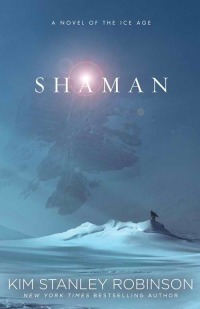Fool's War by Sarah Zettel
 Saturday, September 7, 2013 at 10:36AM
Saturday, September 7, 2013 at 10:36AM 
First published in 1997; published digitally by Open Road Media on May 21, 2013
The world known as the Farther Kingdom was founded during the Slow Burn. Many members of the Islamic faith emigrated to the Farther Kingdom to avoid a drastic fate, including some of Katmer Al Shei's ancestors. Al Shei is the Chief Engineer of a mail packet ship called the Pasadena, which she owns in partnership with Marcus Tully, her brother-in-law. The "mail" she delivers is actually digitalized data. Al Shei's wealthy uncle has hired Evelyn Dobbs to act as the ship's Fool. Al Shei has hired Jermina Yerusha as the new pilot, although prejudice against Freers like Yerusha is even stronger than prejudice against Muslims. Freers follow a quasi-religion that makes unsettling uses of Artificial Intelligences, sometimes adopting them as foster children with the hope that the AI will one day capture a soul. Al Shei, on the other hand, is old school. She refuses to allow an AI to run her ship, in part because some AIs fostered by Freers have caused mayhem.
Against that background (with, of course, several other characters who crew the Pasadena), a conspiracy-thriller plot develops as Al Shei fulfills a contract to deliver data from Earth to the Farther Kingdom. When things start to go massively haywire on the Pasadena, Al Shei suspects that Tully smuggled something on board the ship that has infected it like a virus. The Fool turns out to be no fool; she's the Pasadena's best chance of surviving the crisis. Fools have a secret and that secret eventually changes the novel's direction.
The truly imaginative aspect of this clever novel, of course, is the notion of a ship's Fool who functions as a morale officer and counselor while playing a hidden role. The precise nature of the threat to the Pasadena is also original. Other aspects of Fool's War are more familiar, particularly the direct interface between the human mind and computer software/data storage, but Sarah Zettel gives those notions a fresh context while describing the experience of riding a data stream in innovative terms. Particularly appealing is the way AIs are spontaneously and accidentally "born" and the implications of artificial life that isn't created by humans. In fact, that concept grounds the novel, and Zettel uses it to take AI fiction to an entirely new level.
Zettel also put some significant thought into the novel's political background. Freedom and its price is a recurring theme. Freedom means one thing to bankers but something quite different to inhabitants of Liberty Colonies where libertarian philosophy prevails (resulting in blood feuds fought by private armies as families resolve their differences without the benefit of a stabilizing government). The Freers believe AIs represent the ultimate in human freedom while some AIs reject humanity entirely, believing freedom means being true to their AI nature. It's commonly suggested that righteous wars are fought for freedom, but Fool's War makes the intelligent point that wars are often fought when different groups clash over the meaning of freedom.
War is, as the title suggests, another of the novel's themes. In many respects the war in the novel is different from those fought by humans against each other, but the fundamental lesson that Fool's War teaches applies to all wars: wars break out when people (or AIs) "become careless with the lives of outsiders." There's one other lesson I particularly like: "When we play the fool, how the theater expands!"
Fool's War didn't stir me emotionally as do the best science fiction novels, but it is intellectually satisfying and hugely entertaining, and the last chapters do have moments of emotional resonance. Zettel doesn't have the following of writers in the science fiction pantheon, but Fool's War is a book that deserves the attention of sf fans.
RECOMMENDED



